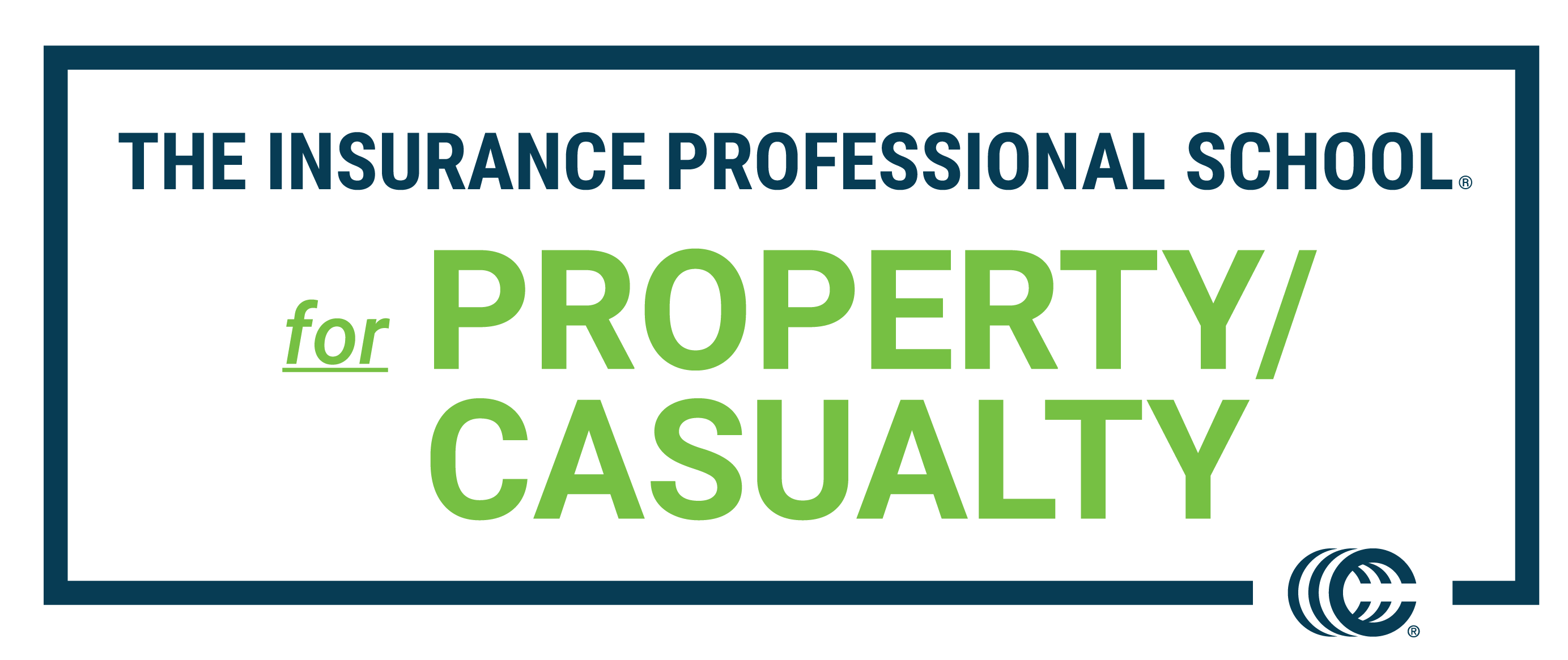

Earn your PRC (Professional Risk Consultant) Designation with the Insurance Professional School for Property/Casualty. The program is a five-month curriculum designed to provide your new employees with the knowledge and skills they need to excel within your firm and contribute to your bottom line.
PROGRAM OVERVIEW
In partnership with The Institutes and the University of Georgia, The Insurance Professional School for Property/Casualty offers a dynamic hybrid learning experience. This program combines flexible, self-paced online coursework with engaging weekly live virtual sessions led by University of Georgia Risk Management & Insurance professors. Upon successfully completing the curriculum and exams, participants earn the prestigious Professional Risk Consultant (PRC®) designation —an early-career certification that enhances expertise in risk consulting and the property/casualty industry.
Key Takeaways
- Learn risk management concepts and apply the principles to the identification and management of a client’s exposures
- Become more adept at analyzing insurance policies
- Attain a deep knowledge of core commercial coverages and apply them to real-world situations
- Gain an understanding of carrier operations, underwriting, market cycles and reinsurance, and the impact of these factors in placing business
- Identify exposures and matching coverage to the needs of a client or prospect
Topics Covered
- Risk Management Fundamentals
- Commercial Property Insurance
- Business Income
- Commercial General Liability
- Workers Compensation & Employers Liability
- Commercial Auto Insurance
- Excess & Umbrella Liability
- Management & Professional Liability
- Commercial Crime Insurance
- Business Owners Policies
- Managing Clients’ Cyber Risks
- Determining an Appropriate Premium
- P/C Insurer Marketplace
- Market Cycles
- Excess & Surplus Lines
- Reinsurance
HOW IT WORKS
The Insurance Professional School is intentionally designed to allow participants the time they need to do their job while simultaneously building foundational knowledge and skills.
The curriculum is brought to life by the extensive use of case studies, and is thoughtfully designed to accelerate the learning curve, provide greater confidence in front of clients and create a customer-centric, advisory mindset.
Time Commitment
Live Virtual Sessions (1 hr. per week)
- Instructor-led
- Held via Zoom
- Reinforces course content and application
Online, Self-Paced Course Work (3 hrs. per week)
- Readings
- Video Lessons
- Workbook Pages
- Quizzes
- Assignments/Discussions
Total participant time commitment: approximately 4 hours per week.
Who Should Enroll?
The Insurance Professional School curriculum is geared toward customer-facing talent with less than three years of experience in the industry. Client-facing roles will benefit most, including:
- Producers/Consultants
- Account Executives
- Account Managers
- Claims and Risk Management Professionals
Not sure who to send? Contact The Council Academy to set up a call.
Tuition and Fees
Council Members Tuition (individual): $1,800
Non-Council Members Tuition (individual): $3,000*Additional designation exam fees not included
Upon completion of the program, participants will receive the Professional Risk Consultation (PRC®) designation from The Council and The Institutes.
ABOUT THE PROFESSIONAL RISK CONSULTANT (PRC®) DESIGNATION
- A hybrid learning experience through The Council’s Insurance Professional School for Property/Casualty, or
- On-demand programming for Council members (use discount code: 2025PRC20CIAB) through The Institutes Agent & Broker Group.
PROGRAM PARTNERS & CONTRIBUTORS
Property Casualty Partners
University of Georgia Terry College of Business
- The University of Georgia partnership with The Insurance Professional School provides industry-leading expertise, high-level instruction, and hands-on application of the technical skills participants need to excel at their firm. The Risk Management and Insurance Program at UGA’s Terry College of Business is home to the largest undergraduate program of its kind in the U.S. and has again been ranked #1 by US News and World Report.
The Institutes
- The Institutes are a trusted knowledge partner for The Insurance Professional School, providing proven online content as a foundational component of the commercial property-casualty insurance curriculum. The Institutes are the leader in delivering knowledge solutions that empower risk management and insurance professionals to help those in need.


